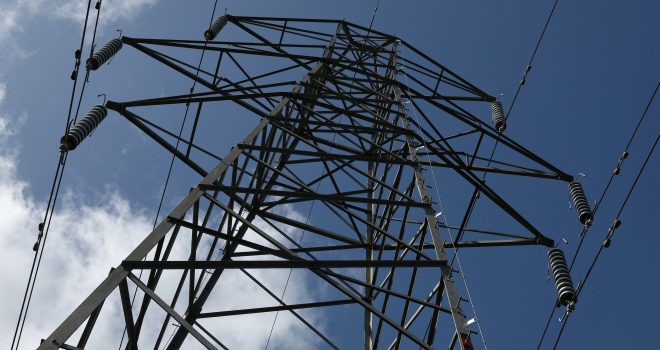Banking Industry ‘Hit With IT Glitches Five Times Per Week’

The banking industry suffers around five IT failures each week typically, shutting millions of customers out of accounts and making payments, according to analysis from Which?
The consumer group, which looked at Financial Conduct Authority (FCA) figures from October 2018 to September 2019 to make the findings, said the next government must protect cash availability as a vital back-up.
Which? found that over the past year, major UK banks suffered 265 IT shutdowns between them that prevented customers from making payments.
The 265 IT glitches involved 133 incidents involving internet banking, 111 mobile banking failures and 90 telephone banking outages.
A glitch can often occur on more than one of these systems at the same time, but is counted as a single incident, Which? said.
Some single incidents may have affected customers at more than one banking brand within a particular banking group.
This means that the total number of unique incidents is likely to be fewer than 265, Which? said.
The Which? analysis found that RBS and Santander customers endured the most IT glitches last year with both banks suffering 18 failures.
This was followed by Barclays (17) and Tesco Bank (16).
The analysis was published following another turbulent time for TSB.
On Friday last week some account holders were left without their salaries as the bank failed to process overnight payments.
TSB also announced this week that 82 branches will be shut next year.
Last year a major IT meltdown left TSB customers without access to services and dragged on for months.
However, the Which? analysis found that TSB suffered fewer recorded glitches than many of its rivals, with six in the past year.
The findings come as Which? launches a report titled Everyday Finances.
The research also suggests that 11 million adults lack the confidence to do basic banking tasks online.
Which? said two-thirds (65%) of people think they would find it difficult to live their life without access to a bank branch – at a time when the industry is carrying out widespread branch closures across the UK.
It said three-quarters (75%) of people think everyday banking services should effectively be considered as a utility – as essential as having gas, electricity or water running in their homes.
Banks are closing their branches at an alarming rate, with the UK having lost a third of its branch network in under five years, the consumer group said.
Which? wants the next government to introduce legislation that protects cash.
Gareth Shaw, head of money, Which?, said: “In our nationwide survey, consumers have made it clear that cash is a vital back-up when digital systems fail – so it’s clear the next government should urgently introduce legislation to protect cash for as long as it is needed.”
Stephen Jones, chief executive of trade association UK Finance said: “Operational resilience is crucial in a modern financial system and the industry continues to invest billions to ensure systems – human and digital – are robust and secure.
“When incidents do occur, firms work around the clock to minimise disruption and get services back up and running as quickly as possible.
“Digital innovation is transforming the way money is managed with 24/7 access to payment systems, increasing the range of day-to-day banking options and providing better back-up for customers if a service is temporarily disrupted.
“The industry conducts sector-wide exercises with regulators to ensure it is prepared to respond effectively to any major disruptions or events as part of its continued commitment to maintaining the resilience of the financial system.
“UK Finance continues to engage with government over how coordination between regulatory authorities could be improved, seeking to avoid overlapped or rushed mandatory change programmes that impact firms’ ability to protect their customers.”
An RBS spokesman said: “Our systems are resilient and we have invested significantly in them to help keep our customers safe and secure. Our service availability level for customers is 99.98%.
“However, we are not complacent and we will continue working to improve our service to minimise any incidents of disruption for customers.”
A Santander spokeswoman said: “Customers will never be left out of pocket as a result of an issue with our systems.
“Where an issue has arisen, we work with our customers to keep them informed and where possible provide alternative ways that they can access our products and services.
“We work closely with our regulators to ensure that our services are as resilient as possible for our customers and apologise to anyone impacted by an operational issue.”
Here are the number of failures per bank, according to the Which? analysis of FCA data:
– Royal Bank of Scotland (RBS), 18
– Santander, 18
– Barclays, 17
– Tesco Bank, 16
– First Direct, 15
– HSBC UK, 15
– Cahoot, 14
– NatWest, 14
– Lloyds Bank, 13
– Ulster Bank, 11
– Virgin Money, 11
– Bank of Scotland, 10
– Halifax, 10
– Intelligent Finance, 10
– First Trust Bank, 8
– Metro Bank, 8
– Bank of Ireland, 7
– Chelsea Building Society, 6
– TSB, 6
– Yorkshire Building Society, 6
– Danske Bank, 5
– Smile, 5
– Co-op Bank, 5
– Nationwide Building Society, 4
– Coventry Building Society, 3
– Monzo Bank, 3
– B, 3
– Clydesdale Bank, 2
– Yorkshire Bank, 2
– M&S Bank, 0
– Starling Bank, 0
Vicky Shaw is PA Personal Finance Correspondent.




